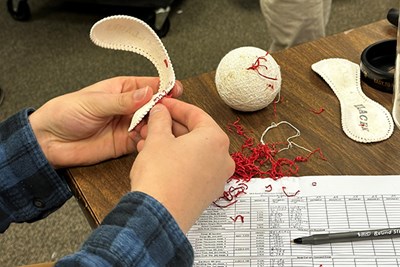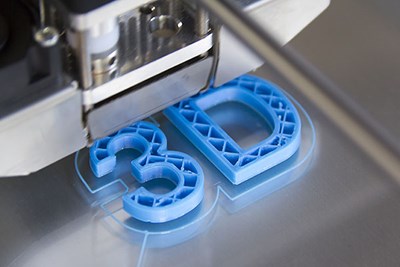Assoc. Prof. David Claudio Named Student Group Advisor of the Year
 Image by K. Webster
Image by K. Webster
09/11/2024
By Katharine Webster
Lego displays featuring movie and comic book superheroes decorate the office of Industrial Engineering Assoc. Prof. David Claudio, along with artwork and crafts that reflect his Puerto Rican heritage.
Claudio is a superhero in his own way. His dedication to the student chapter of the Society of Hispanic Professional Engineers won him the Student Organization Faculty Advisor of the Year award for 2023-24.
Claudio also does outreach at area high schools that have diverse student populations, including Lawrence, Lowell and Greater Lowell Technical high schools.
“I tell them, ‘I want to be your mentor, but I need you to be the mentee and come to the university for us to have that relationship,’” he says.
Claudio, who directs the Industrial Engineering Program, also does hands-on “lean health care” research. Most recently, he’s collaborating on ways to improve screening and treatment for breast cancer and cervical cancer among Latinas, thanks to a three-year, $360,000 fellowship from the Robert Wood Johnson Foundation.
 Image by Courtesy
Image by Courtesy
Q: What drove you to get involved in recruiting and mentoring Hispanic students right after coming to UMass Lowell three years ago from Montana State University?
A: At Montana State, my wife (Industrial Engineering Assoc. Teaching Prof. Maria Velazquez) and I brought the Hispanic way of teaching: very caring, very family. Lots of juniors and seniors would start gravitating around us, but it was mostly white males. I wanted to do the same thing, but for people who needed a little bit more.
As you know, Hispanics and Latinos are underrepresented in engineering, along with Black people, women and first-generation college students. I started thinking about legacy: From now on, the things that I do, when I’m no longer on this Earth, what am I leaving behind?
In the Society for Hispanic Professional Engineers, we want to build a supportive community, so in addition to helping with professional development, we also have fun. We’ve had salsa lessons; we have game nights with Hector Valdes, senior project manager in the Office of Facilities Management.
 Image by K. Webster
Image by K. Webster
Q: What brought you to UMass Lowell when both you and your wife had successful careers in Montana?
A: In part, it was that desire to teach and mentor more diverse students. UMass Lowell was looking for a director of Industrial Engineering and also looking for teaching faculty, so that solved the “two-body problem.” We also wanted to be closer to Puerto Rico and our family members there. We wanted our children to grow up somewhere with more diversity in terms of people and culture and food. Lowell is fantastic for that! And there are some great opportunities for research collaborations here.
Q: How did you get interested in “lean health care”?
A: After years of studying and working in manufacturing, I was ready to try something new. I was very fortunate to go to Pennsylvania State University for my Ph.D. when it offered its first class on health care engineering.
For my dissertation, I analyzed the emergency rooms at two hospitals in Puerto Rico. I found that patients were seen in the order they were brought in, instead of based on how severe their symptoms were. I’ve done similar work in Montana with community health clinics and hospital cancer wards, medical wards and pre- and post-operative surgical wards. At one hospital, we found that nurses were spending only 30% of their time on bedside assistance; the rest of the time, they were doing computer paperwork. I helped to improve that.
 Image by Courtesy
Image by Courtesy
Q: Tell me more about your current research.
A: In Montana, I began working with a member of the nursing faculty and a local public health official to improve health care among Latinos. We formed a community advisory board and asked the members what the biggest health concerns were among their families, friends and neighbors. No. 1 was mental health, followed by nutrition, which contributes to high rates of diabetes and hypertension. Then we asked, “Out of all these root causes, what are the ones you think we can target?” And we started systematically analyzing barriers, including language, income, immigration status and reliance on traditional healers.
We were already doing this work when the Robert Wood Johnson Foundation put out a call for multidisciplinary teams to dismantle systemic racism in health care. In Montana, women can get vouchers for free mammograms and Pap smears, but 38% of Hispanic women failed to follow up on their test results, compared with 4% of non-Hispanic women. Using the fellowship, we’ve identified many of the barriers and are now identifying policy changes that could help to reduce them.


